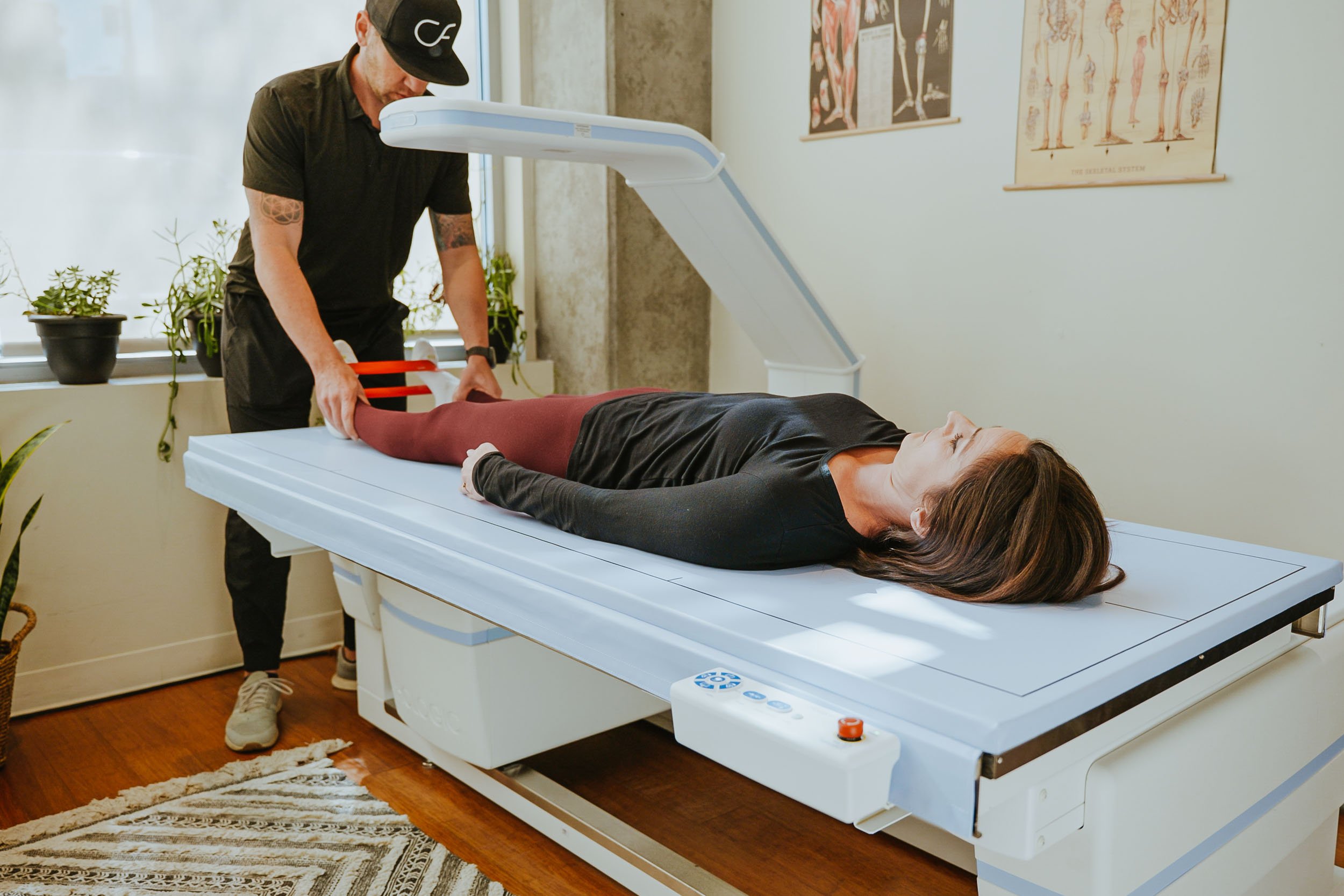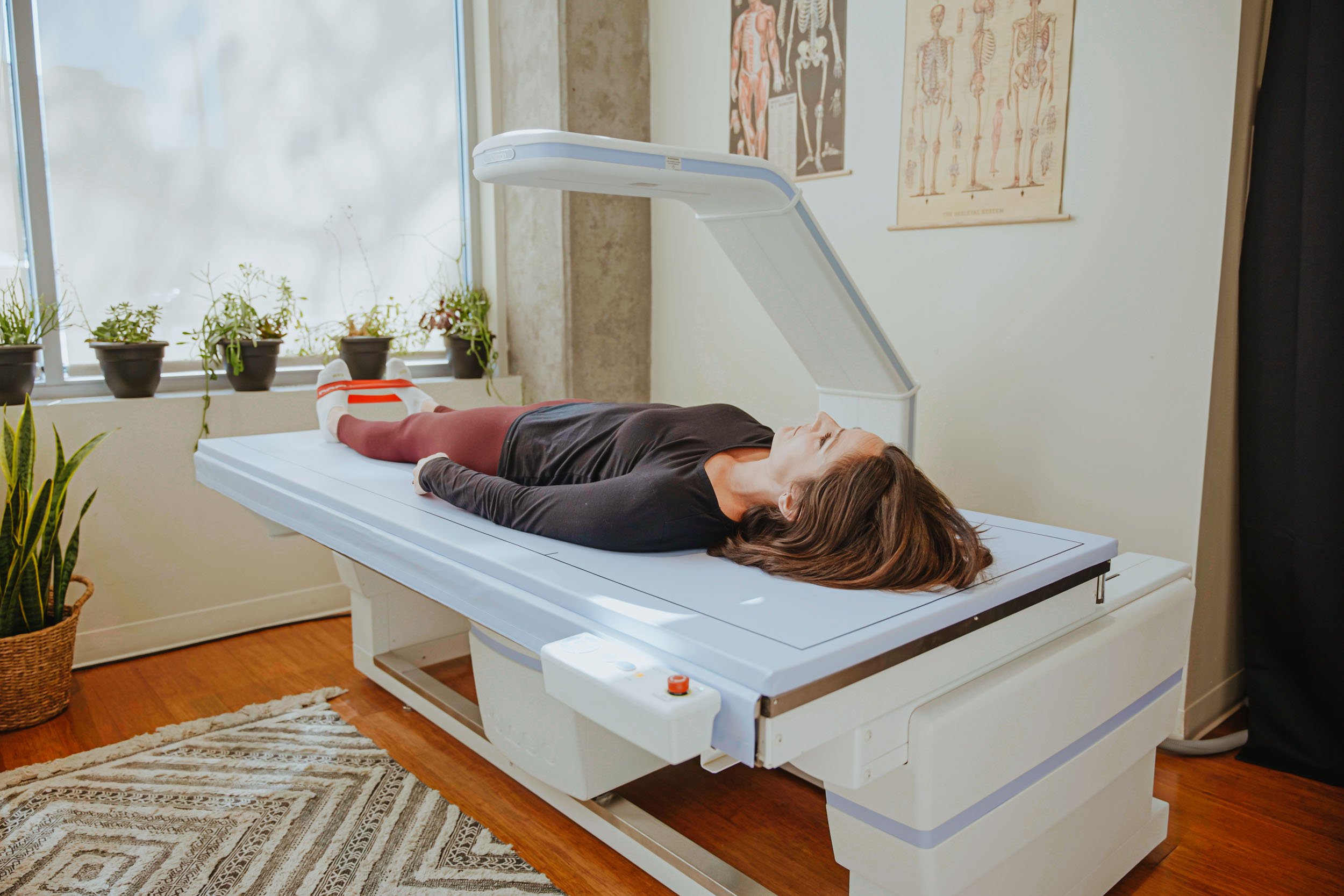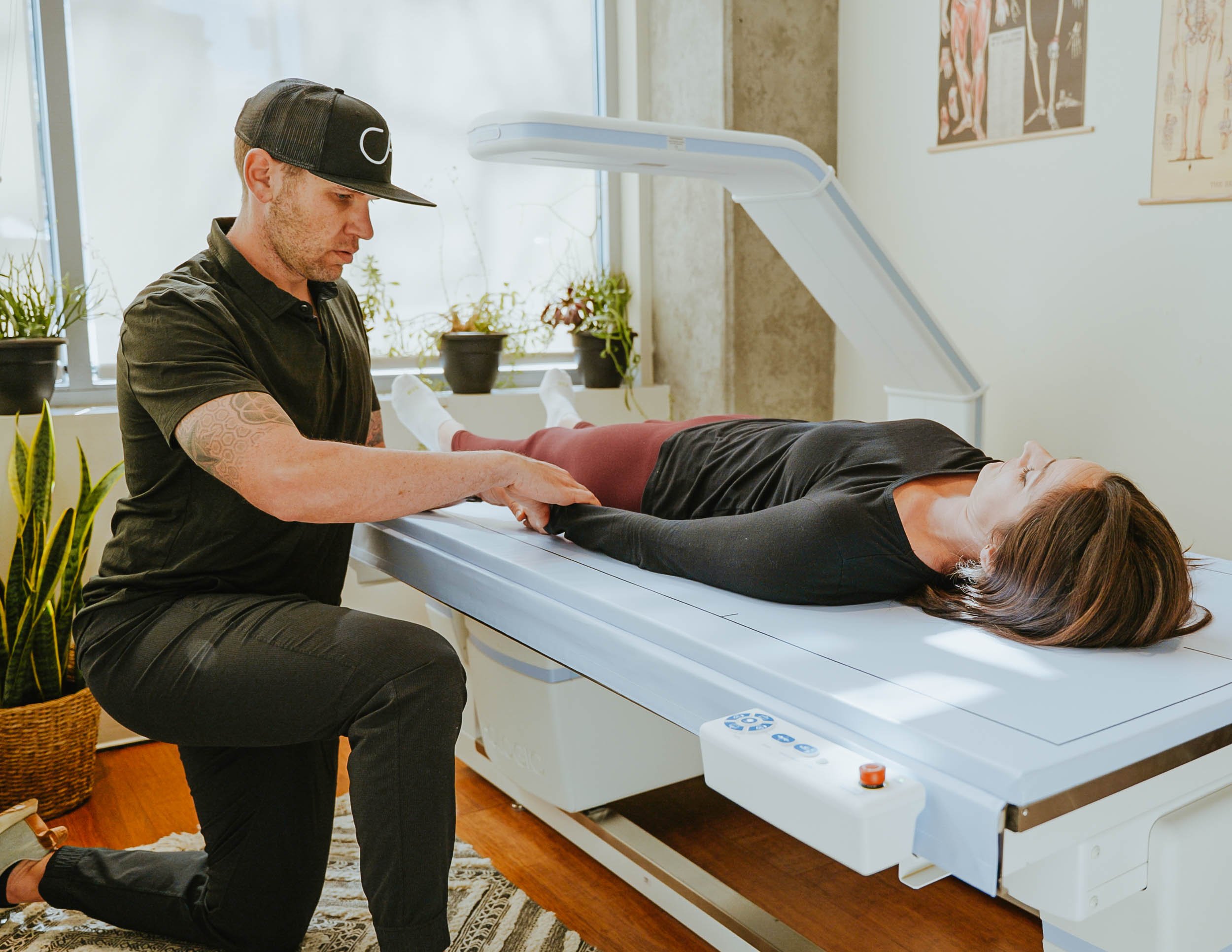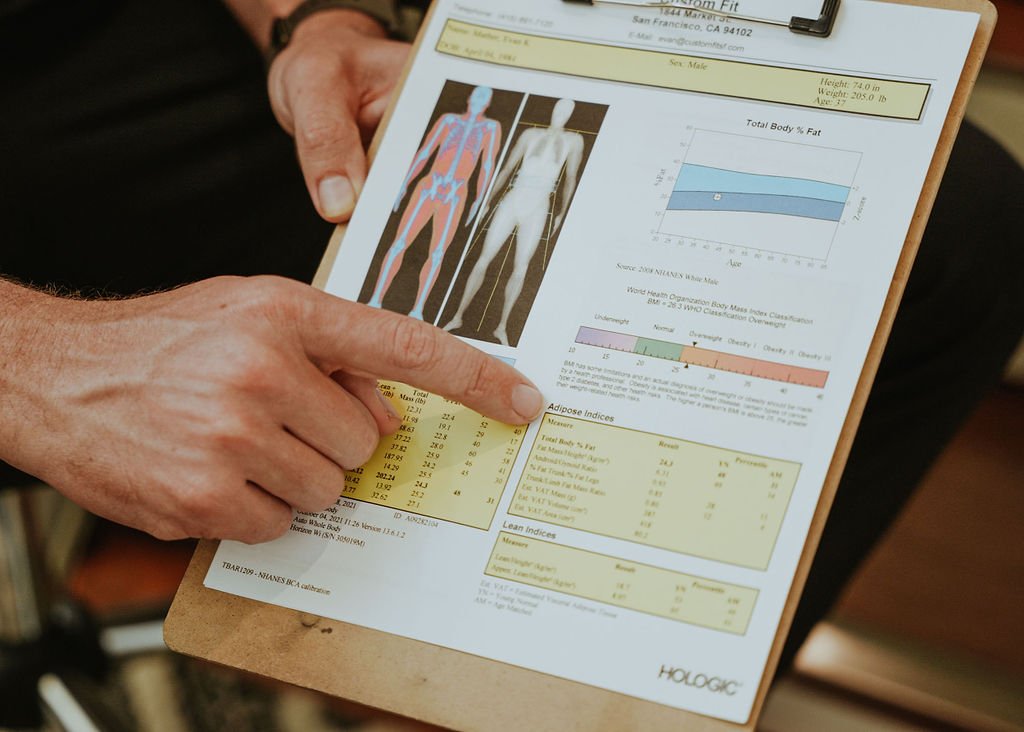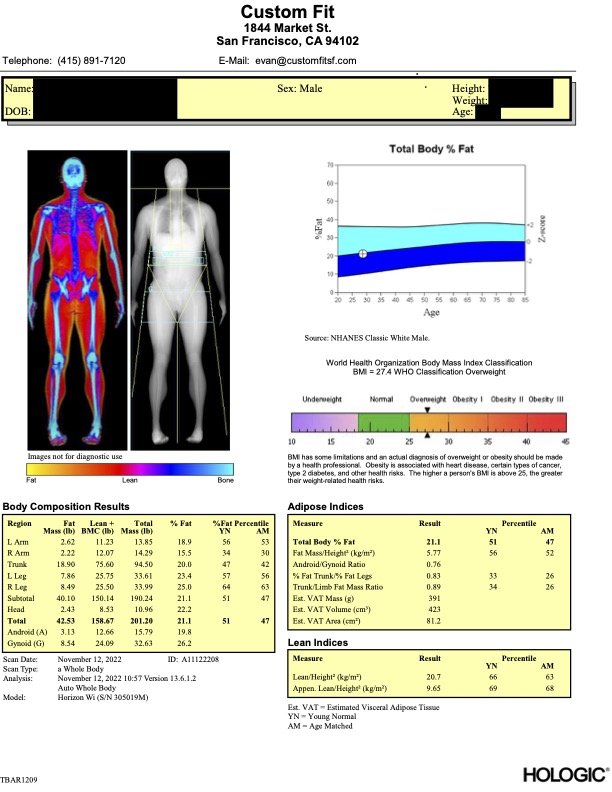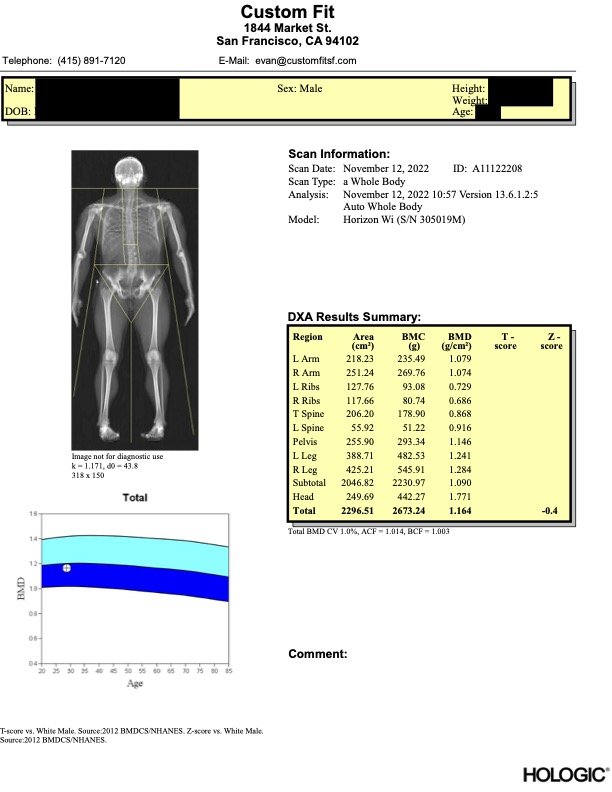DEXA Scan
Custom Fit is proud to offer DEXA scans, the gold standard for measuring, tracking and analyzing your body composition. In only 6 minutes you will get your real body fat percentage, muscle mass, visceral adipose tissue, bone density*, left vs. right imbalances, and much more. After the scan you’ll receive a detailed report about your body + expert advice on how to achieve your goals.
DEXA Report
After the scan you will get a detailed report showing your:
Body Fat Percentage - the percentage of fat in your body, accurate down to 1%. The report will show a color coded heat map of the distribution of the fat, muscle and bone in your body.
Lean Tissue - A precise measurement of lean muscle down to the gram, segmented by body area (e.g. right side vs left side)
Visceral Adipose Tissue (VAT) - also called visceral fat, it is located in the abdominal cavity and around the organs. Visceral fat cells are metabolically active and impact a variety of clinical risk factors such as fasting blood sugar, serum cholesterol and triglyceride levels. A DEXA scan is one of the few reliable, accurate, and cost effective ways to measure VAT.
Resting Metabolic Rate - your RMR is the baseline caloric (energy) requirement at a rest to maintain your body weight. This means lying on your back relaxing. This number give us a good starting point in order to change your weight and/or body composition,
Left vs. Right Muscle Imbalances and Asymmetries - muscle imbalances can lead to injuries because the dominant side will compensate for the weak side, and one of the best aspects of a DEXA scan is measuring this discrepancy, down to gram. With this info we can easily adjust your personal training plan or provide advice on how to correct this on your own. This is also very helpful is assessing progress with injury recovery.
Fat Mass Index - Compared to BMI (body mass index), FMI is a more accurate tool in assessing overweight/excess fat because it calculates the amount of fat a client has relative to their height instead of total weight relative to height. Fat Mass distribution and adipose tissue dysfunction are the most efficient predictors of insulin resistance (IR) and related complications, even more so than Body Mass Index (BMI).
Lean Mass Index - Your LMI is the amount of muscle you have relative to your height. The higher this number the more muscle you have.
Body Mass Index - BMI is the most widely used measure to define and classify "normal" weight, "overweight" and "obesity." BMI is a fairly crude measurement as it only considers height and weight and cannot measure body fat, muscle mass or fat distribution. Muscle weighs more than fat and BMI is unable to distinguish this. Although regularly used in clinical and research settings, this is not the ideal way to measure health or disease risk.
Android/Gynoid Ratio - sometimes called the waist-to-hip ratio, it is the ratio between the percentage of fat in the Android (central) and percentage of fat of the Gynoid (hip & thigh) regions. Android fat is associated with unhealthy or visceral fat.
Appendicular Lean Muscle / Height - this ratio is a measurement of functional muscle in your appendages (legs and arms) relative to your height. This value is linked to physical performance and is used clinically to monitor sarcopenia or other muscle disabilities. The higher the number, the more functional muscles you have.
Bone Mineral Density - Your BMD is a measurement of the amount of minerals (mostly calcium and phosphorous) contained in a certain volume of bone. Bone mineral density measurements are used by doctors to diagnose osteoporosis (a condition marked by decreased bone mass), to see how well osteoporosis treatments are working, and to predict how likely the bones are to break.
Z-Score & T-Score - two separate measurements of bone density compared to someone similar to you (Z-score) and to that of a Caucasian female at peak bone density (T-score). This score can be informative of relative bone mineral density.
Example report
All results will be interpreted/explained by an expert trainer or Registered Dietitian.
All DEXA scan appointments will be at 323 Octavia St. (Hayes Valley).
This scan is not for medical diagnostic purposes for bone density screening
Pricing:
1x Scan - $150
2x Scans - $199
4x Scans - $349
